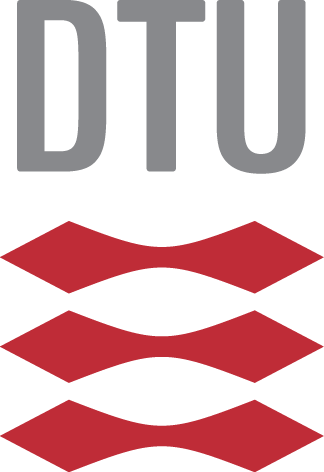-
FindZebra has rapidly become an integrated part of our diagnostic set up for rare diseases. FindZebra is undoubtly one of the fastest and most reliable ways to link clinical symptoms to causal genes
We have numerous examples of patients with rare and unknown syndromes where FindZebra has led us to a diagnosis, by associating symptoms to rare mutations identified by whole exome sequencing.
Finn Cilius Nielsen (MD)
Center for Genomic Medicine, National Hospital of Denmark.
-
Findzebra is a very useful and helpful tool in our multidisciplinary Brigham Genomic Medicine Program. Our clinical team uses FindZebra as one of the tools to diagnose rare Mendelian disorders by linking between symptoms and diseases. Our computational and research team uses FindZebra to gather more evidence for causality on gene level for novel genes discovered by our computational analysis of genomic sequencing data.
Dana Vuzman (PhD)
Instructor in Medicine, Harvard Medical School. Associate Director, Brigham Genomic Medicine Program (BGMP).
-
I'm 33 years old and I have been sick since I was born. I've seen endless consultants who have all been at a complete loss as to what I have. I've been diagnosed with Bronchiectasis, Youngs syndrome, and cystic fibrosis, but were all proved negative. Then I saw your site in the Guardian and tried it and after tweaking the symptoms it came up with mastocytosis, which has since been confirmed. I am now on the right treatment and feeling a thousand times better.
Thank you, without your site I would still be lost.
Robert
Patient from United Kingdom.
About
"When you hear hoofbeats, think of horses not zebras". Sometimes, however, physicians are confronted with rare diseases (the zebras). FindZebra is a tool for helping diagnosis of rare diseases. It uses freely available high quality curated information on rare diseases and open source information retrieval software (Apache Lucene Solr) tailored to the problem.
FindZebra is intended primarily for physicians and other professionals concerned with diagnosis of rare diseases. Users seeking information related to personal conditions are urged to consult with a qualified physician. FindZebra cannot be held responsible for any consequences following its use.
Orphan diseases affect more than 30 million Americans. 40% of patients are misdiagnosed or un-diagnosed. Traditional search engines need to be optimized to help diagnose rare diseases from symptoms. This is where FindZebra comes in! FindZebra is a symptom checker. Enter clinical and phenotype information, symptoms and findings and FindZebra returns potential diseases and genes involved.
Papers
- Radu Dragusin, Paula Petcu, Christina Lioma, Birger Larsen, Henrik L Jørgensen, Ingemar Cox, Lars K Hansen, Peter Ingwersen, and Ole Winther, FindZebra: a Search Engine for Rare Diseases, in International Journal of Medical Informatics, IJMI doi:10.1016/j.ijmedinf.2013.01.005 (2013). Link, Preprint arxiv
- Radu Dragusin, Paula Petcu, Christina Lioma, Birger Larsen, Henrik L Jørgensen, Ingemar Cox, Lars K Hansen, Peter Ingwersen, and Ole Winther, Specialised tools are needed when searching the web for rare disease diagnoses, Rare Diseases, doi:10.4161/rdis.25001 (2013). Link
- Svenstrup, Dan, Henrik L. Jørgensen, and Ole Winther. Rare disease diagnosis, A review of web search, social media and large-scale data-mining approaches, Rare Diseases 3.1 (2015): e1083145. Article link
- Valentin Liévin, Christoffer Egeberg Hother, Ole Winther, Can large language models reason about medical questions?, (2022). Preprint arxiv
- Valentin Liévin, Andreas Geert Motzfeldt, Ida Riis Jensen, Ole Winther, Variational Open-Domain Question Answering, ICML (2023). Preprint arxiv, Link
- Valentin Liévin, Jonas Meinertz Hansen, Allan Lund, Deborah Elstein, Mads Emil Matthiesen, Kaisa Elomaa, Kaja Zarakowska, Iris Himmelhan, Jaco Botha, Hanne Borgeskov, Ole Winther, FindZebra online search delving into rare disease case reports using natural language processing, PLOS Digital Health (2023). Link
Team
FindZebra ApS was founded by Professor Ole Winther, entrepreneur Mads Matthiesen and PhD Dan Svenstrup. Henrik Jørgensen, MD, was founding medical advisor. Machine learning and software development team: Jonas Hansen, Mathias Baltzersen, Rasmus Hvingelby, Thomas Nielsen. Design: Tobias Due Munk.
Sources
FindZebra indexes articles from GARD, GeneReviews, Genetics Home Reference, OMIM, Orphanet, and Wikipedia.
Data about associations between diseases and genes are sourced from DisGeNET.
API
With the FindZebra API it is possible to use computer programs and scripts to make lookups in FindZebra's online search engine. See the API documentation for practical and technical details








